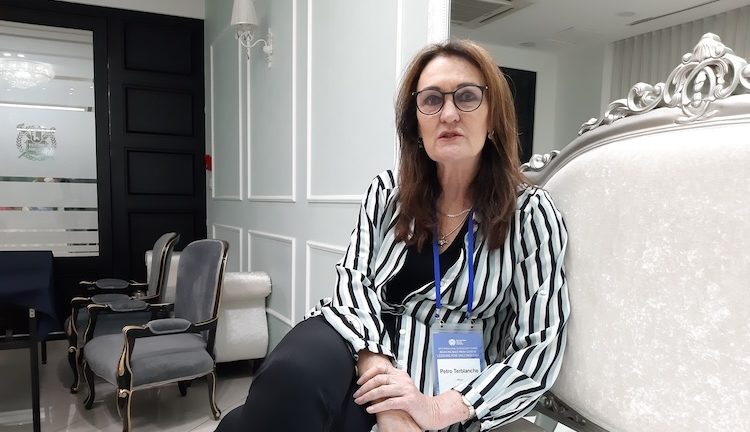By Busani Bafana
BULAWAYO, Zimbabwe | 29 May 2024 (IDN) — Africa’s limited vaccine manufacturing capacity means heavy reliance on imports to respond to outbreaks. However, boosting manufacturing capacities on the continent can change this, says Petro Terblanche, the CEO of Afrigen Biologics and Vaccines, a biotechnology start-up company aiming to expand vaccine equity in Africa.
The continent—which has far lower rates of vaccination— has been unable to contain disease outbreaks as a result. Worse, Africa receives too few vaccines from global suppliers and this was more evident during the COVID-19 pandemic when the continent only accessed about 540 million vaccines out of more than 9 billion vaccine doses produced. To date, less than 10 per cent of Africans are vaccinated against COVID-19, according to the World Health Organization (WHO).
During 2023, Africa was hit by disease outbreaks, from Diptheria in Nigeria, Guinea, Niger, Mauritania, and South Africa; Ebola in Uganda; dengue fever in East Africa; mpox in Ghana, Liberia, and Nigeria to yellow fever in Burkina Faso, Cameroon, the Central African Republic, Chad, Republic of the Congo, Côte d’Ivoire and the Democratic Republic of the Congo (DRC).
Afrigen Biologics and Vaccines are empowered and supported by the WHO to build the capacity in low- and middle-income countries to produce mRNA vaccines through its centre of excellence and training. The start-up company established the first-ever adjuvant production and formulation technology and vaccine facility centre in Africa which develops vaccine adjuvants that are therapeutic and disease-preventing.
“We need to create an ecosystem for sustainable manufacturing that supports not only vaccines but also diagnostics and other medical countermeasures,” says Prof. Terblanche, emphasizing that such an ecosystem should have agencies suitable and qualified to regulate vaccine manufacturing and releases as well as a policy environment that enables the sustainability of vaccine manufacturing.
Manufacturing is also a socio-economic enabler
“We must not forget that manufacturing is also a socio-economic enabler, the poorest nations in the world are identified for their inability to manufacture essential products that those nations need. The continent, as part of our quest for economic development, must invest in manufacturing capacity,” Prof. Terblanche noted.
The COVID-19 pandemic surfaced vaccine nationalism as a negative development, particularly in Africa where countries were vulnerable because they were not able to manufacture their vaccines.
“Drug substances and drug manufacturing are less than one percent of our needs,” Prof. Terblanche said, adding, that “Our capacity is inadequate for a fill-finish, and pledges are not being implemented. The continent needs to build capacity for drug substances and drug product manufacturing including fill finish for critical vaccines required by the continent.”
Calling for end-to-end research development and manufacturing capacity on the continent to develop vaccines for diseases, Prof. Terblanche said:
“There are more than 22 pathogens that plague the continent, we call them neglected diseases because they are not prioritized for vaccine development by the global north because of the financial risk, high costs, and because they are not large market sizes.”
Lamenting that vaccine hesitancy is a serious issue which was evident during the COVID-19 pandemic, Prof. Terblanche explained that scientists need to communicate the science of vaccines in simple language to prevent confusion and unnecessary fears.
She said there is a need to understand social and behavioural issues driving vaccine hesitancy and to engage anti-vaxxers in constructive and rational discussions.
“I think we should continue to advocate for civil society organizations, governments, role models, and scientists to bring the message across that vaccination is essential for a healthy population and just continue to dialogue and not judge and not go to war with anti-vaxxers,” said Prof. Terblanche. [IDN-InDepthNews]
Photo: Prof. Petro Terblanche, the CEO of Afrigen Biologics and Vaccines, a biotechnology start-up company aiming to expand vaccine equity in Africa. Credit: Busani Bafana.


